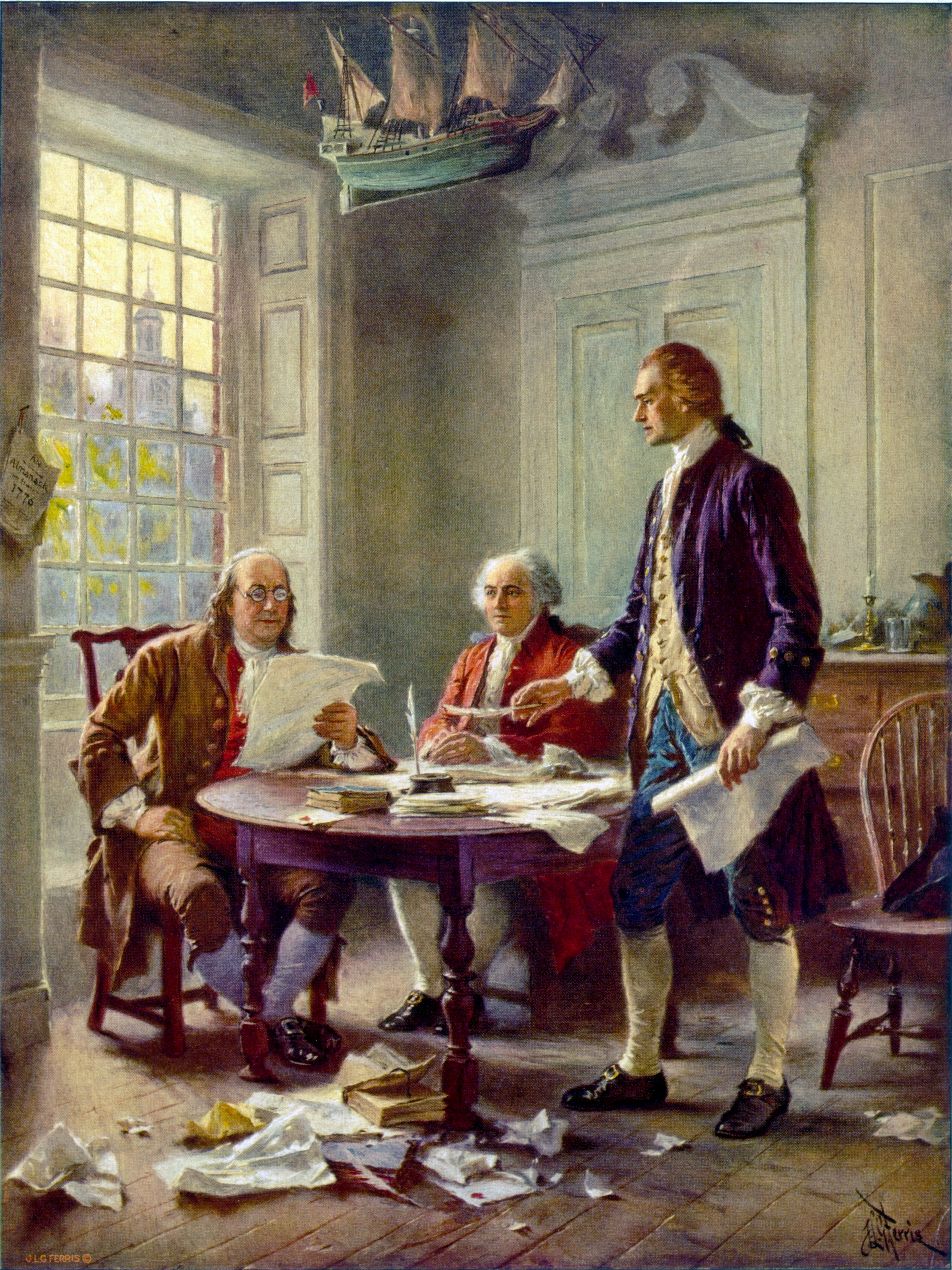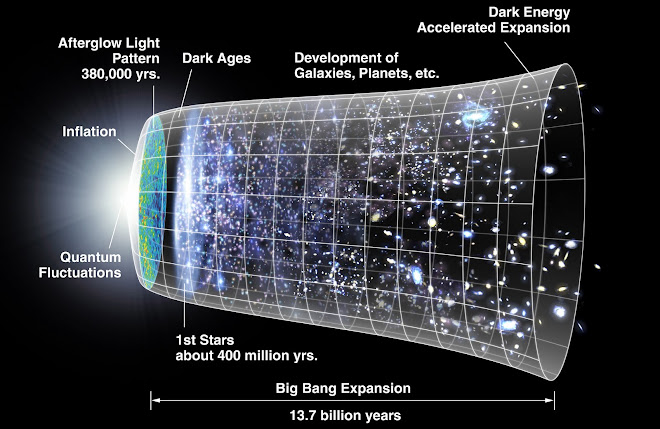Sunday, July 31, 2016
Postmodernism Weaponized
"Conscience" is a "bourgeois" value. The Revolution must overcome it and the idea of truth that stands behind it.
Saturday, July 30, 2016
Friday, July 29, 2016
Wednesday, July 27, 2016
Monday, July 25, 2016
Rendezvous with Early Modernity (Il mondo creato coming soon)
Torquato Tasso and Eleonora D'Este examining a proof copy of the new International Authors translation of Creation of the
World.
Sunday, July 24, 2016
Saturday, July 23, 2016
Apollo 11 Command Module in High Resolution
To mark the 47th anniversary of the Apollo 11 moon-landing mission, the Smithsonian has made available high-resolution 3-D scans of command module “Columbia,” the spacecraft that carried astronauts Neil Armstrong, Edwin Aldrin and Michael Collins to the moon. To view the interior, click HERE. Once the viewer is opened, control the perspective with your mouse. Buttons in the upper left corner provide additional features, including a detailed tour of capsule highlights. To view the capsule exterior, click HERE.
Friday, July 22, 2016
The Place of Philosophical Inquiry
Understanding the sense of propositions proceeds the
project of explaining reality, as the analysis of the former calls into
question the authority of the latter.
Thursday, July 21, 2016
Paradise Lost and the analysis of intellectual mythology, very brief
Myth is not fiction: it consists of facts that are continually repeated and can be observed over and over again. It is something that happens to man, and men have mythical fates just as much as the Greek heroes do.
~ Carl Jung, CW 11, §648.Milton would disagree, I think, as Jung's formulation attributes a kind of logical, scientific legitimacy to emotional experience. It's like Jung is saying the experience of a headache is the same as a scientific understanding of headaches. By way of explanation, let's dilate upon a definition of poetry and myth, and then clarify their relationship to each other.
I use the words interchangeably: myth is poetry, poetry is myth, and it--poetry/myth--is either in some sense accurate, or in some sense deceptive. Compare Wittgenstein: "Philosophy is a battle against the bewitchment of our intelligence by means of language" (PI §109). In Paradise Lost, Milton is using the poem to analyze this very bewitchment, and as such it can be read as an anthropological exposition of the emergence of analytic philosophy and clear(er) understanding. In Milton, the language of religion and religious myth becomes the vehicle for the emergence of this clearer understanding: the transcendence of misunderstanding and deception (lies/Satan) is realized metaphorically in the victory of the Son, who is the clarification of philosophical credulousness that is rooted in conceptual confusion and the misuse of language.
Milton begins with religious language because of our historical circumstance. We are forced to use this language, but over time the discussion produces various heterodoxies that allow us to view the linguistic-stream-of-life confluence in toto--or rather in context--thus enabling us to gain a clear overview of the parts, the whole, and their relations to each other.
Hester and Dimmesdale go through this in The Scarlet Letter: the context of their Calvinist orthodoxy gives them the linguistic tools they use to transcend that same orthodoxy. In working this out, Hawthorne suggests a two-phase Calvinist experience, and places the "post-Calvinist" phase at the center of American political and philosophical understanding. Compare Melville in Moby-Dick, and Mark Twain in The Adventures of Huckleberry Finn. Nabokov plays on this string producing marvelous effects in Pale Fire. The plot and theme of these novels is suggested by Wittgenstein:
What is your aim in philosophy? - To show the fly the way out of the fly-bottle.I would argue, too, that this post-Calvinist worldview compares very closely to core aspects of Judaism, and also sets forth the outlines of the modern worldview we associate with Ockham, Bacon, Locke, and Jefferson--whose originality chiefly rests in his ability to clarify these ideas in memorable and effective political language.
~ Ludwig Wittgenstein, PI §309
Milton--returning once more--shows that poetry is the vehicle par excellence for examining the phenomenon and realizing Wittgenstein's aim.
Wednesday, July 20, 2016
Nationalism in the United States and Europe
While our use of the word is similar, Europeans and Americans understand the concept of nationalism in fundamentally different ways. The American "nation" is rooted in identification
with the state and the social contract. In Europe, "nation," by
definition, is rooted in culture and ethnicity.
In Europe, state and nation are separate entities. For historical and legal reasons, in America that can never be the case. Moreover, in America nationality is a philosophical concept, rooted not in identity but rather in process and activity. Nevertheless, America does have an identity.
State and nation are used almost interchangeably in America. Almost. Specifically, the state is subject to the democratic will and the republican structure of the political process. Nationhood--or national identity--is an acceptance of the social contract that defines and shapes the process. American national identity therefore is embodied in the U.S. Constitution.
(Note: I am circumspect about the use of the word "will" in the third paragraph, but for now we'll table that question for another occasion, when we will also tackle the distinction between government and state.)
In Europe, state and nation are separate entities. For historical and legal reasons, in America that can never be the case. Moreover, in America nationality is a philosophical concept, rooted not in identity but rather in process and activity. Nevertheless, America does have an identity.
State and nation are used almost interchangeably in America. Almost. Specifically, the state is subject to the democratic will and the republican structure of the political process. Nationhood--or national identity--is an acceptance of the social contract that defines and shapes the process. American national identity therefore is embodied in the U.S. Constitution.
(Note: I am circumspect about the use of the word "will" in the third paragraph, but for now we'll table that question for another occasion, when we will also tackle the distinction between government and state.)
Tuesday, July 19, 2016
Breaking: Professor Hodges to go K-Pop (trigger warning: cuddly American ex-pat culture and literature maven prepares to jump the shark)
Today I was going to write something profoundly insightful about fine contradistinctions among sundry American and European theories of nationalism, when I ran into Professor Hodges' recent Gypsy Scholar post describing his EWIS course, which he just finished teaching for the summer at Ewha Womans University in Seoul, South Korea. Well, as you can tell from the pictures, the aesthetic whirlwind I found myself caught up in switched me over to a consideration of K-pop. Allow me to explain...
The Wikipedia article describes K-pop as an exciting mix of popular musical genres:
Short answer: NO!
K-pop is getting smart again once more with a really new idea. How about a girl band featuring a forty-five (ahem) year-old American professor as the lead singer and dancer!? Now, my Korean pop culture IQ prohibits me from venturing to guess what the new band might be called, but I have a feeling my suggestion is for sure going to match the trendy excitement of the concept itself!
The Wikipedia article describes K-pop as an exciting mix of popular musical genres:
K-pop (an abbreviation of Korean pop; Hangul: 케이팝) is a musical genre originating in South Korea that is characterized by a wide variety of audiovisual elements. Although it comprises all genres of "popular music" within South Korea, the term is more often used in a narrower sense to describe a modern form of South Korean pop music covering a range of styles including dance-pop, pop ballad, electropop, R&B, and hip-hop music.
K-pop represents a style of music that is not afraid of experimentation. As Highbrow readers especially know, years of developing new ideas can get a little tiresome. Moreover, there is ever the problem of exhausting the possibilities, of "drying up" and discovering that the next "new" idea has already been done. Bold new intellectual sensations don't grow on trees. Coming up with a "zilch" is always the specter lurking behind the next corner in the world of avant-garde "wow" engineering. One wonders, could even K-pop run out of steam?The genre emerged with one of the earliest K-pop groups, Seo Taiji and Boys, forming in 1992. Their experimentation with different music styles "reshaped Korea's music scene". As a result, the integration of foreign musical elements has now become common practice in the K-pop industry.K-pop entered the Japanese market at the turn of the 21st century and rapidly grew into a subculture among teenagers and young adults of East and Southeast Asia. Currently, the global spread of K-pop and Korean culture known as the Korean Wave is seen in Latin America, India, North Africa, the Middle East, and elsewhere in the Western world.
Short answer: NO!
K-pop is getting smart again once more with a really new idea. How about a girl band featuring a forty-five (ahem) year-old American professor as the lead singer and dancer!? Now, my Korean pop culture IQ prohibits me from venturing to guess what the new band might be called, but I have a feeling my suggestion is for sure going to match the trendy excitement of the concept itself!
 |
| Dr. Daddy-O a-Go-Go! |
Monday, July 18, 2016
Sunday, July 17, 2016
Saturday, July 16, 2016
Museum for Art and Trade Celebrates Expressionist Mask Dance
Mask dance with expressionist costumes by Lavinia Schulz and Walter Holdt (around 1920) on the occasion of the reopening of the exhibition modern at the Museum für Kunst und Gewerbe, Hamburg in February 2012. A co-production of the Museum für Kunst und Gewerbe and the Hochschule für Musik und Theater, Hamburg.
To learn more about the costumes, please click HERE.
Friday, July 15, 2016
Wednesday, July 13, 2016
Yukio Mishima
I've read only one of this short stories--about a pair of lovers committing seppuku, as I recall. Very powerful voice. Intense.
Bushido is at the center of Mishima's error, I believe. Captain Tameichi Hara is very critical of the philosophy in his memoir Japanese Destroyer Captain. One such passage can be viewed HERE.
What can we make of Yukio Mishima? Off the top of my head, I want to compare him to Bruce Lee. Both can be seen as representing similar difficulties shared by bright and talented--and very ambitious--Asian men in the post-WWII period. There is all this tremendous history and culture behind them, and yet the historical situation is such that their cultures (and they) have been humiliated. Both are keenly aware of the issue, and both are engaged in creating reasoned and workable responses. Possibly because of the nature of the philosophy he was building from, Lee produced the more successful response. But Lee's experience of Hong Kong and America was also to his advantage. Lee looked to the future, to an inclusive philosophy where everyone had a seat at the table. Lee was about understanding, about truth, about acknowledging "what works best," about living, about the "veracity" of the moment and spontaneously living in that moment. I would note, too, that conservative Chinese elements in San Francisco did not like Lee teaching their "secrets" to the westerners, and I think it had to do with a pretty bad beating Lee took... It's in that biographical film about Lee that his wife had a hand in making. Lee's Chinese identification was philosophical--he didn't have it on his back, but under his belt. Mishima's Japanese identification was too backward-looking, too closely bound up in the "political mechanics" of that identification. And he missed out on an opportunity of expressing what was best in that culture by succumbing to what was worst.
Mishima projects a deep sensitivity in the video. Or is it his charisma? His death was evidently a tragedy: in one view a grotesque exercise in egoism, in another a misjudged response to the failure of a misjudged political cause. He was not a mere fanatic, however, or so it would seem.
Tuesday, July 12, 2016
Monday, July 11, 2016
Sunday, July 10, 2016
Existential Crisis Resolution for Young People and their Friends Considered as a Synchronal Cosmic Veneer
-- YesPerpetual Change
I see the cold mist in the night
And watch the hills roll out of sight.
I watch in ev'ry single way,
Inside out, outside in, ev'ry day.
The sun can warm the coldest dawn
And move the movement on the lawn.
I learn in ev'ry single day,
Inside out, outside in, ev'ry way.
And there you are,
Making it up but you're sure that it is a star,
And boy you'll see
It's an illusion shining down in front of me,
And then you'll say
Even in time we shall control the day,
When what you'll see
Deep inside base controlling you and me.
And one peculiar point I see,
As one of many ones of me.
As truth is gathered, I rearrange,
Inside out, outside in, inside out, outside in,
Perpetual change.
And there you are,
Saying we have the moon, so now the stars,
When all you see
Is near disaster gazing down on you and me,
And there you're standing,
Saying we have the whole world in our hands,
When all you'll see,
Deep inside the world's controlling you and me.
You'll see perpetual change.
You'll see perpetual change.
And there you are,
Making it up but you're sure that it is a star,
And boy you'll see
It's an illusion shining down in front of me,
And then you'll say
Even in time we shall control the day,
When what you'll see
Deep inside base controlling you and me.
As mist and sun are both the same,
We look on as pawns of their game.
They move to testify the day,
Inside out, outside in, inside out, outside in,
All of the way.
Ah, Ah.
Friday, July 8, 2016
Thursday, July 7, 2016
Yuko Nii’s Bridge Concept, an Illustrated Note (revisited)
In light of the current interest in political philosophy, I should like to look at some forward looking ideas we've considered here at the crossroads of the Highbrow Commonwealth. On February 10, 2012, I posted the following note on Yoko Nii's Bridge Concept:
Brilliant gems of knowledge have been surfacing as I learn more about the Williamsburg Art and Historical Center.
In recent correspondence with Terrance Lindall, we have been discussing Yuko Nii’s “Bridge Concept” and the mission of the WAH Center to bring different peoples together by building cultural bridges that serve as a catalyst for producing social and economic progress. One of Yuko’s inspirations was the bridge that was figuratively built when Japan opened its doors to the West and America during the Meiji (“enlightenment”) period. Western ideas in education, politics and commerce found fertile soil in Japan, which subsequently, and with remarkable alacrity, modernized into a world power of the first order. Though the initial progress of the Japanese Empire is a controversial subject, there is consensus applauding the “second” modernization of Japan that took place after the Second World War--once again with remarkable alacrity, and producing a nation that not only emerged again as a world power of the first order, but moreover did so with a denunciation of offensive warfare placed at the center of its new political constitution.
Housed in the WAH Center, the Yuko Nii Foundation is custodian to collections of books, art, porcelain, kimonos, sculpture, rare curios, and other objects d’art. Among this vast archive is an original illustration of President Ford and Emperor Hirohito honoring Perry's world changing voyage to Japan. The illustration is signed by President Ford and the illustrator Lloyd Ostendorf. The 20th century's pre-eminent authority on Lincoln photographs, Ostendorf was also the most famous illustrator of the life of Lincoln.
A first edition, 1856, of Perry's voyage. There was one previous large format version presented only to members of Congress. It contained an infamous nude bathing scene that scandalized the Capitol.
Brilliant gems of knowledge have been surfacing as I learn more about the Williamsburg Art and Historical Center.
In recent correspondence with Terrance Lindall, we have been discussing Yuko Nii’s “Bridge Concept” and the mission of the WAH Center to bring different peoples together by building cultural bridges that serve as a catalyst for producing social and economic progress. One of Yuko’s inspirations was the bridge that was figuratively built when Japan opened its doors to the West and America during the Meiji (“enlightenment”) period. Western ideas in education, politics and commerce found fertile soil in Japan, which subsequently, and with remarkable alacrity, modernized into a world power of the first order. Though the initial progress of the Japanese Empire is a controversial subject, there is consensus applauding the “second” modernization of Japan that took place after the Second World War--once again with remarkable alacrity, and producing a nation that not only emerged again as a world power of the first order, but moreover did so with a denunciation of offensive warfare placed at the center of its new political constitution.
Housed in the WAH Center, the Yuko Nii Foundation is custodian to collections of books, art, porcelain, kimonos, sculpture, rare curios, and other objects d’art. Among this vast archive is an original illustration of President Ford and Emperor Hirohito honoring Perry's world changing voyage to Japan. The illustration is signed by President Ford and the illustrator Lloyd Ostendorf. The 20th century's pre-eminent authority on Lincoln photographs, Ostendorf was also the most famous illustrator of the life of Lincoln.
President Ford and Emperor Hirohito honoring Perry's Voyage, by Lloyd Ostendorf.
A first edition, 1856, of Perry's voyage. There was one previous large format version presented only to members of Congress. It contained an infamous nude bathing scene that scandalized the Capitol.
An illustration from Perry's Voyage.
Wednesday, July 6, 2016
Philosopher John Gray on Brexit: positive language
A friend just sent me this BBC 4 link to John Gray's assessment of the situation with Britain and the EU. Gray seems to support my sense that at some point in the future there is going to be a reentry or reenetry-like negotiation. I can only think there are bright
people in the EU and the UK who want to hold things together, who will
accommodate the British exit vote, and
who will institute reforms that possibly needed to be made anyway. Listening to his observations, I sense that Gray is using the kind of language that could help bring people together.
Please click HERE to listen to Gray's assessment.
Please click HERE to listen to Gray's assessment.
 |
| John Gray |
Tuesday, July 5, 2016
"Max Q"
In the field of aerodynamics, dynamic pressure, a combination of air density and speed, is called "Q". When a rocket is launched, the rocket accelerates and Q increases. As the rocket ascends though the atmosphere, air
density decreases, and there is a point where the combination of increasing speed and
decreasing density is a maximum. This point is called "Max Q." From this point on, the rocket continues to accelerate as it ascends through the atmosphere, but also air density continues to decrease, so that the increasing velocity of the rocket does not contribute to an increase in dynamic pressure. This is neatly illustrated in the following graph showing the dynamic pressure and velocity of a simulated Saturn Five passing through the atmosphere. Here Max Q is achieved eighty seconds after launch, approximately fifteen seconds after the simulated rocket has passed through the sound barrier.
In the following photograph of a Saturn Five, the condensation cloud forming around the lower half of the rocket indicates that it is passing through the sound barrier, and that it will soon reach Max Q.
Find this interesting? Please click HERE.
In the following photograph of a Saturn Five, the condensation cloud forming around the lower half of the rocket indicates that it is passing through the sound barrier, and that it will soon reach Max Q.
Find this interesting? Please click HERE.
Monday, July 4, 2016
Jefferson, Franklin, Adams
Thomas Jefferson (right), Benjamin Franklin (left), and John Adams (center) meet at Jefferson's lodgings, on the corner of Seventh and High (Market) streets in Philadelphia, to review a draft of the Declaration of Independence. From a postcard reproduction of the oil painting "Writing the Declaration of Independence, 1776" by Jeon Leon Gerome Ferris (1863-1930). The faces of Franklin and Adams evoke rich characterizations. Jefferson's expression is harder to pin down, unless it be simple sincerity.
Saturday, July 2, 2016
Daughters of Leisure, Observation, Introspection and Inspiration
Gustave Moreau: Les Muses quittent Apollon, leur Père, pour aller éclairer le Monde; The Muses leaving their father Apollo to go and bring light to the World (detail). Gustave Moreau Museum, Paris.
Friday, July 1, 2016
Solipsedelic Giddy Up a Ding Dong: Brexit, continued
In this matter of Brexit, I've observed that many people
don't argue or debate, they fight. Rather than an informative
conversation, people are locked in stubborn bickering. I have observed this in other discussions touching on topical subjects, and words like "insipid" and "solipsism" come to mind as I seek to understand why people are so angry. The intolerance
is such that you might as well give up
on a political discussion. People have their minds made up and that's
it. People don't seem to want to compare their feelings as feelings. Feelings are treated like positions, and if they are not my
positions, they are ridiculed and dismissed in a flurry of ad hominum invective. People don't want to
analyze their own or others' levels of understanding. They don't want
to learn why other people have the positions they do. People don't
want to understand why others have differing views, they just want to
label and condemn. Rather than seeing shades of grey, or cultivating a
good sensitivity to irony, things are simply either "correct" or
"incorrect." Very tiresome.
Remember the Chinese curse: "May you live in interesting times."
Remember the Chinese curse: "May you live in interesting times."
Subscribe to:
Posts (Atom)











































